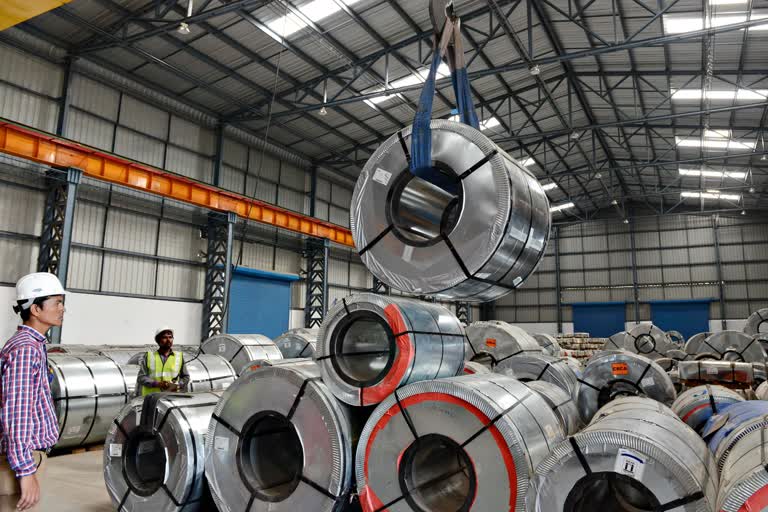New Delhi: The government on Wednesday said reducing the impact of carbon emissions is "one of the greatest challenges" for the steel industry, and called for collaboration among stakeholders to address the issue.
Speaking at a webinar 'By-Product Management for Indian Steel Industry' organised by industry body FICCI, Steel Additional Secretary Rasika Chaube said it is important to adopt technologies that can capture carbon from CO2 (carbon dioxide) and prevent it from entering the atmosphere.
"I must mention that reducing the impact of carbon is one of the greatest challenges which is being faced by our industry. For the steel industry like ours where there is a dominance of blast furnaces, the only way to substantially reduce associated CO2 emissions is to transit towards carbon capture and storage (CCS) and carbon capture and utilisation (CCU)," she said.
In India, steel players such as Tata Steel, JSW Steel, Jindal Steel and Power Ltd, AMNS India and state-owned entities Steel Authority of India Ltd and Rashtriya Ispat Nigam Ltd use the blast furnace route to make steel.
Chaube said there is also a need to utilise by-products generated from steel making in the country.
"We (only) concentrate on the main product (steel) and many a times tend to forget the by-products and the waste that is generated and that needs to be taken care of. We need to have a reliable collaboration...which will help us reduce GHG (greenhouse gases) emissions that cause global warming," she said.
Slag, fly ash, CO2, sludge and dust carrying zinc are the main by-products and waste generated while producing steel through different steel making routes in India, according to the Steel Research & Technology Mission of India (SRTMI), a collaborative research platform formed jointly by the steel ministry and domestic steel players.
SRTMI's main objective is to facilitate research and development in iron and steel by strengthening association among industry, academia and research bodies.
In the webinar attended by participants from India and abroad, Chaube said India has become the world's second-largest steel maker contributing 6 per cent to the overall global steel output, and producing steel in large quantities also leads to generation of by-products proportionately.
